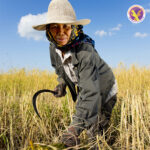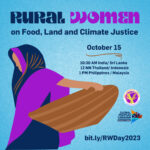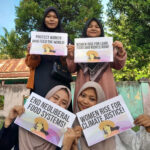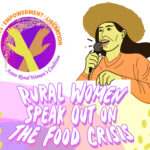Informalisation of Work through Free Trade Agreements: Eroding Labour Rights
On 19-20 June 2008, Committee for Asian Women (CAW), a network of 43 women workers groups organised a Forum on EU- ASEAN FTA and NAMA in Siam Beverly Hotel, Bangkok. The speakers at the forum were Lucia V. Jayaseelan from Committee for Asian Women (CAW), Chanida Bamford from Focus on the Global South , Naty Bernardino from International Gender & Trade Network (IGTN-Asia), Melody Kemp, a Board member Asian Network for the Rights Of Occupational Accident Victims (ANROAV) , Jurgette Honculada from the National Federation of Labour, Kiratngkorn Narintarakul from FTA Watch , Thailand, and Charlotte Wei from Globalisation Monitor.
The speakers stressed the need to bring together people and movements who have previously been divided and ruled through this bilateral trade agreement process. Lucia Jayaseelan pointed ILO’s World Labour Report showing that increasing trade liberalization and the effects of globalization have resulted in job losses and less secure employment in both industrialized and Third World countries.
“NAMA will be devastating to developing countries”, said Chanida Bamford.
Naty Bernadino cautioned the crowd about the need to monitor the social and environmental clauses in newer trade negotiations like the EU-ASEAN FTA.
Melody Kemp spoke about community based organising and importance to forge linkages and alliances with trade unions and community based organisations.
Jurgette Honculada examined the feminisation of migration and its exacerbation due to neo-liberal policies.
Charlotte Wei and Kingkorn Narintarakul sprinkled some optimistic strategies being adopted by groups in the region on resisting the advent of the free trade and the success in making free trade, just trade for communities.
The forum concluded with a joint declaration which will be sent to the Governments of the ASEAN region, to the Ministries of Trade and Commerce in each country. Participants to the forum, members groups of CAW will disseminate the Declaration in their own countries.
(See Declaration on the Asian Women Workers on the Free Trade Agreements (FTAs)







